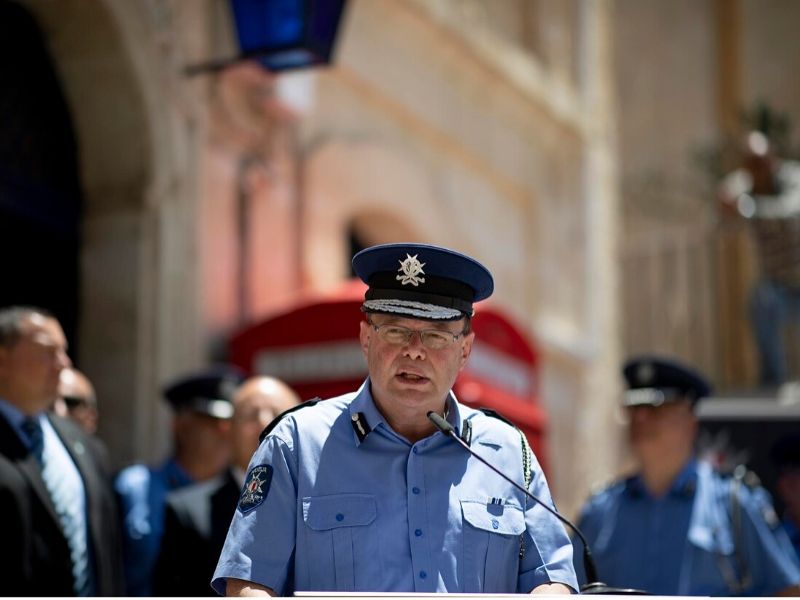“One can describe Joseph Muscat’s government as ‘rotten to the core’ and a ‘byword for corruption'” – Tim Sebastian, DW.
Malta is small island right in the middle of the Mediterranean with an infant democracy after centuries of being a colony. With its tightly knit small community, it has always had a tendency towards corruption. What the Maltese think is compassion and kindness might in fact be bribery and nepotism, like employing a cousin or close an eye to a traffic infraction by a close friend.
Just like any organisation inspires the behaviour of its staff, countries develop their own approach through the example of the people at the top. Since Joseph Muscat and his cronies took power in 2013, corruption became the order of the day.
After a few days of gaining power the Muscat government withdrew the court case against the owners of Cafe Premier who were being sued by the previous administration for violating the contract. The government even forked out €4.2 million to sugarcoat the deal.
A week later the government also dropped the case against the Labour Party for breaching the contract on Australia Hall in Pembroke. Prime Minister Joseph Muscat handed PL leader Joseph Muscat land worth at least €10 million. It continued with Gaffarena’s palazzo in Mint Street, stopped only as a result of press investigations.
The ex-Prime Minister sanctioned and excused visible wrongdoing. By standing by Minister Konrad Mizzi and his chief of staff Keith Schembri after they were exposed to have set up secret Panama companies, Joseph Muscat endorsed and encouraged corruption and money laundering. Muscat’s inaction and endorsement on corruption slowly but steadily started to infect all Maltese institutions and the Joe Borgs’.
When investigative journalist Daphne Caruana Galizia was killed by a car bomb in October 2017, the depths into which Malta had descended was clear. Muscat said he was shocked by the murder and vowed in front of the country that he would “leave no stone unturned” until the culprits faced justice.
The former Police Commissioner Lawrence Cutajar’s inaction was also clear from the start. Some thought it was incompetence, others thought otherwise. It was when the civil society started to protest that things began to move, slowly.
The people kept up the pressure until Muscat had to accept an independent public inquiry to investigate if the State could have done more to protect Caruana Galizia. And it was through this process that the connections of the police and the underworld began to surface.
The main investigators of the assassination were in direct contact with individuals suspected of being involved. It became known to all that Muscat’s chief of staff, Keith Schembri, was kept abreast of police investigations through his office at Castille.
Melvin Theuma, the middleman in Caruana Galizia’s murder granted a presidential pardon for his collaboration with the police, testified in Court that Yorgen Fenech, one of Malta’s richest people and close friend of Muscat was the mastermind behind the journalist’s murder in October 2017. Theuma said under oath that Fenech was receiving inside information about developments in the investigation from Schembri and Deputy Police Commissioner Silvio Valletta.
It also emerged that Valletta went on holiday with murder suspect Fenech in September 2018 – Valletta had been given key roles in the murder investigation. The Caruana Galizia family had to face a long battle in court to get him removed and they clearly had good reason.
Fenech, who filed a constitutional application against one of the main investigators, Inspector Keith Arnaud in an attempt to remove him from the murder investigation described his investigation into Schembri’s possible as ‘careless, approximative, if not amateurish’. He also said Arnaud provided information to Schembri that was then passed on to Fenech.
Former Police Commissioner Cutajar told a court that inspectors Arnaud and Kurt Zahra were asked to look into the alleged leaks, but got nowhere. This prompted Judge Lawrence Mintoff to ask: “Are you saying Arnaud investigated himself?” We also learnt from Cutajar’s testimony that Schembri used to attend briefings regarding the police investigation into the assassination.
Repubblika recently asked for Assistant Commissioner Ian Abdilla’s resignation after he said under oath that Valletta had told him to interrogate Fenech at his Portomaso suite instead of the police headquarters, and that the ‘meeting’ was later cancelled as Fenech was sick. Schembri had sent for Abdilla twice to ask him about the investigations, with the investigator even told him to seek legal advice on the Panama Papers. Abdilla enabled the impunity that killed Caruana Galizia, the civil society organisation said.
Muscat created a situation where instead of criminals being investigated they worked in unison with the police to evade justice. The buck now stops with Prime Minister Robert Abela, who is on record saying that everyone has to pay for their actions. We’re still waiting.












